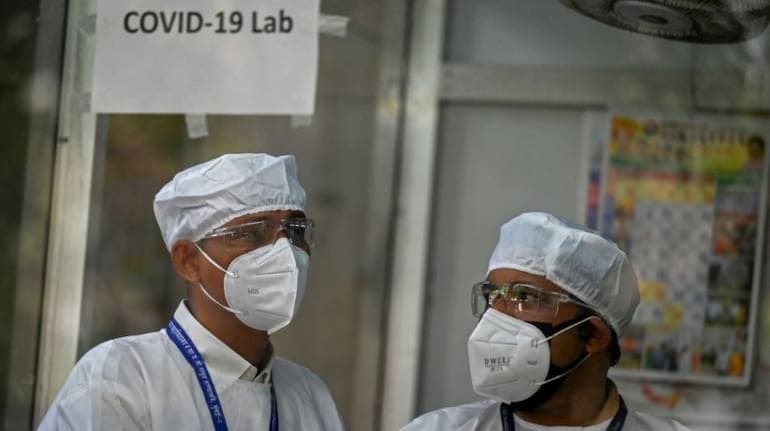



The COVID-19 pandemic, which for over three years has killed millions of people, wreaked economic havoc and deepened inequalities, no longer constitutes a global health emergency, the WHO said Friday.
It is "with great hope that I declare Covid-19 over as a global health emergency", WHO chief Tedros Adhanom Ghebreyesus told reporters, estimating that the pandemic had killed "at least 20 million" people -- nearly three times the under seven million deaths officially recorded.
The move came after the WHO's independent emergency committee on the COVID-19 crisis agreed during its 15th meeting on Thursday that the crisis no longer merited the organisation's highest level of alert.
But, Tedros warned, the decision did not mean the danger was over, cautioning that the emergency status could be reinstated if the situation changes.
"The worst thing any country could do now is to use this news as a reason to let down its guard, to dismantle the systems it has built, or to send the message to its people that COVID-19 is nothing to worry about," he said.
The UN health agency first declared the so-called public health emergency of international concern (PHEIC) over the crisis on January 30, 2020.
That was just weeks after the mysterious new viral disease was first detected in China and when fewer than 100 cases and no deaths had been reported outside that country.
But it was only after Tedros described the worsening COVID-19 situation as a pandemic on March 11, 2020, that many countries woke up to the danger.
By then, the SARS CoV-2 virus which causes the disease had already begun its deadly rampage around the globe.
Still struggling to understand what they were up against, countries scrambled to respond, making it up as they went.
The pandemic today
And worldwide, the disease had as of May 3 officially claimed more than 6.9 million lives, and sickened more than 765 million others, according to WHO, which has said the true figures are likely far higher.
The UN health agency said last week that Covid deaths globally had plunged 95 percent since January, but the disease still killed 16,000 people worldwide last month alone.
Despite the lingering danger, the pandemic has faded from mind in many if not most countries.
Tedros warned Thursday that testing and tracing efforts have "declined significantly around the world, making it more difficult to track known variants and detect new ones".
Vaccines, which were developed at record speed and began being rolled out by late 2020, remain effective at preventing severe disease and death, despite the parade of new and more infectious Covid variants that have appeared.
But while indisputably a towering scientific feat, the vaccines also laid bare greed and gaping inequities, as wealthy countries hoarded the jabs, as poorer countries were left struggling for months to get hold of a single dose.
An antivax movement on steroids and massive misinformation campaigns over social media meanwhile turned vaccination into a charged political issue, leaving many with access to the jabs unwilling to take them.
The pandemic also exposed staggering inequality in access to healthcare and services, from the long lines of Brazilians waiting to fill oxygen canisters for loved ones gasping for air, to the funeral pyres that crammed New Delhi's sidewalks and car parks as the bodies piled up in early 2021.
Even today, the emergence of new variants threatens to reignite the emergency.
Origins mystery
Tedros has also warned of the ongoing impact of Long Covid, which provokes a long line of often severe and debilitating symptoms that can drag on for months or years.
This condition has been estimated to impact one in 10 people who contract Covid, suggesting that hundreds of millions of people could need longer-term care, he cautioned.
The world is currently striving to put in place measures to help avert future global health catastrophes.
But those efforts are being hampered by heated debate around the origins of the pandemic.
The virus was first detected in late 2019 in Wuhan China, but it remains unclear how and where it first began spreading among humans.
The issue, which has been heavily politicised, has proved divisive for the scientific community, which are split between a theory that the virus jumped naturally to humans from animals and one maintaining that the virus likely leaked from a Wuhan laboratory -- a claim China has angrily denied.
Beijing stands accused of obstruction and has ignored repeated WHO requests for more access and information to help solve the mystery.
WHO and its member states have launched into discussions towards an international treaty or some such aimed to draw lessons from the mistakes made during the Covid pandemic and ensure the world reacts more effectively and equitably to the next one.
The question is not if, but when.
Discover the latest Business News, Sensex, and Nifty updates. Obtain Personal Finance insights, tax queries, and expert opinions on Moneycontrol or download the Moneycontrol App to stay updated!
Find the best of Al News in one place, specially curated for you every weekend.
Stay on top of the latest tech trends and biggest startup news.